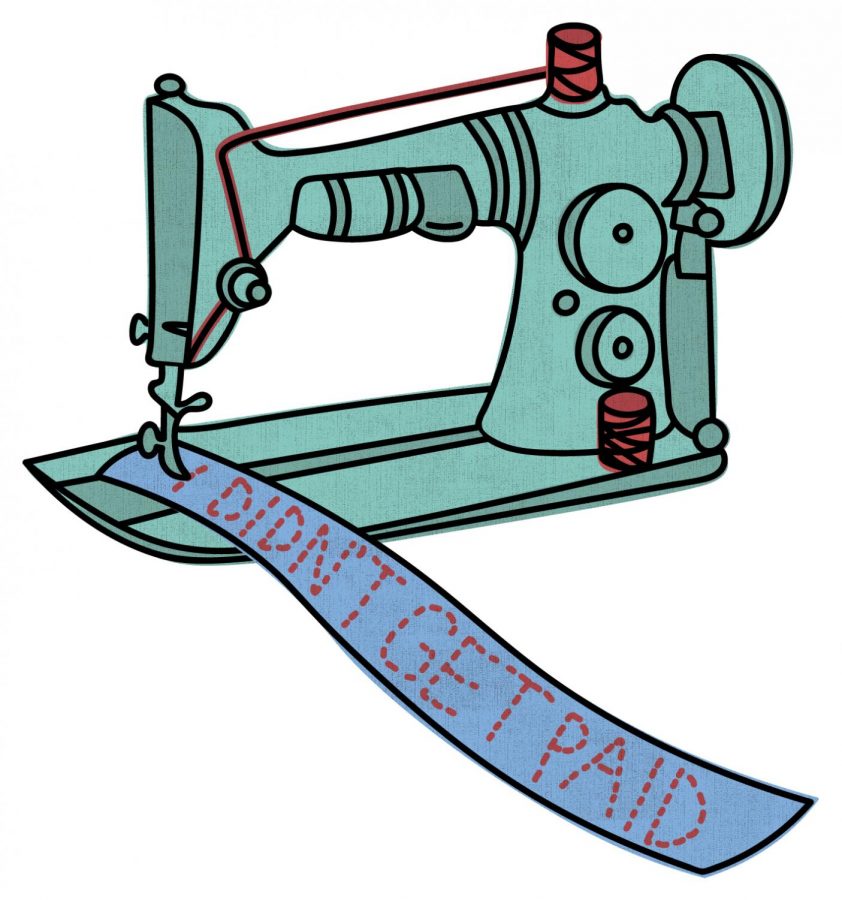Fast fashion costs more than market price
November 27, 2017
With new collections released every week, it is hard to resist the urge to buy a cute new top from Forever 21. But shoppers often don’t pay attention to the manufacturing process.
Fast fashion describes clothing produced by retailers who take trends off the runway during fashion shows and quickly create a cheaper, lower quality version to sell to consumers the next week.
But this comes with a cost. While shopping at fashion retailer Zara, customers from Istanbul found something unusual in the garments, which were tagged with messages from the factory workers saying, “I made this item you are going to buy, but I didn’t get paid for it,” according to a Nov. 3 Associated Press article.
Most fast-fashion retailers rely on sweatshops where employees work long days without a break to create hundreds of garments for our pleasure yet barely make enough to live on.
Major fashion brands such as Victoria’s Secret, Nike, H&M and Forever 21 also have a history of allegedly using sweatshops and abusing their employees.
These factories’ practices are also anti-feminist. They exploit their largely female workforce while making a profit selling clothing with feminist messages.
Seventy-five million people make clothes for brands across the world, and 80 percent are women, according to a July 26 Forbes article. These women encounter sexual assault, corporal punishment and verbal abuse while making little to no wages.
Zara quickly responded, stating it is working on a proposal for a hardship fund for the employees affected by the situation, according to a Nov. 3 Refinery29 article.
Despite Zara’s quick response, there is no excuse for not paying workers. If the public hadn’t been involved, those workers would still lack a paycheck. This should teach other brands that workers will take a stand against unethical practices.
Rana Plaza, home to many brand manufacturers, shone a spotlight on sweatshops after collapsing April 24, 2013, killing 1,134 and injuring more than 2,500 others.
After this wake-up call,17 companies—including Nike, Patagonia and H&M—agreed to follow the transparency pledge, according to an April 30 NPR article. The pledge is aimed at providing ethically sourced products by encouraging brands to identify and provide other information about the clothing manufacture processes, according to the Human Rights Watch.
However, there are still many brands not publishing their information, including Urban Inc., Forever 21 and American Eagle Outfitters. Transparency is necessary to prove they are sourcing their garments ethically.
Sweatshops cannot be ignored, and ending them needs to become more important to feminists. Women are making little to nothing for a garment and in return are sexually harassed, assaulted or worse. Designers and consumers alike need to face this problem by finding a balance between fairly priced garments and workers’ basic human rights.
Most college students can’t afford expensive brands but still want to be conscious of how their clothing is manufactured. We constantly see headlines, but the discussion stops and the problem remains. In order to make a change, we need to acknowledge the problem and keep the discussion going. If we keep having the conversation, brands will begin to listen and source its products ethically.








